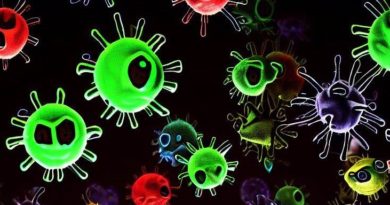Anti-Vax Posts Against Future COVID-19 Vaccine Steadily Increasing on Social Media, Researchers Warn
Misinformation about a vaccine linked to the ongoing COVID-19 pandemic is “steadily rising” on social media, experts say.
The warning comes from a team of Virginia Commonwealth University (VCU) researchers who unveiled a new academic paper this week—(S)pin the Flu Vaccine: Recipes for Concern—analyzing content about the flu vaccine on the photo-based site Pinterest.
Mainstream social networks have ramped up efforts to stop the spread of vaccine lies, but one researcher involved in the project says this may not be enough.
“One of the things we are seeing on social media now is a steady increase of anti-future COVID-19 vaccine posts,” said Jeanine Guidry Ph.D, assistant professor in the College of Humanities and Sciences and director of the Media & Health Lab at VCU.
Newsweek subscription offers >
“That is particularly concerning since the COVID-19 vaccine does not exist yet although more than 150 versions are under development worldwide.
“One of my concerns is that by the time that, hopefully, a safe and effective vaccine will be available, a certain percentage of people will not be willing to get the vaccine because they are convinced it is not safe,” the lead researcher continued.
The results of the study were published in the journal Vaccine.
The team said they decided to run the first-of-its-kind study about Pinterest—which has since cracked down on “anti-vax” content—because its demographics skew female, and women often play a “central role” in families’ healthcare decisions.
Newsweek subscription offers >
It concluded that negative posts about the flu vaccine on Pinterest, including the use of “fear-provoking” images like needles, tended to have higher engagement. At the same time, posts with a positive spin on the vaccine often resulted in less engagement.
Luckily, posts originating from “influencers” on Pinterest were more likely to be pro-flu-vaccine and “perceived benefits” of medicine were found in roughly one-quarter of all vaccine-linked posts, researchers said, according to a university release.
In 2020, the results provide a snapshot, but the data is now outdated. It analyzed 500 flu vaccine-related Pinterest posts collected on October 9, 2018. However, that doesn’t mean the problem of such “anti-vax” information spread has diminished.
In May, a separate study suggested anti-vaccination content on Facebook was better at attracting undecided users to the cause than their pro-science rivals.
As reported, the analysis was spearheaded by Prof. Neil Johnson of George Washington University. It analyzed Facebook clusters with up to 100 million people and warned that legitimate vaccine information could be drowned out by fringe science.
Last month, another piece of research said Facebook was more likely to be the source of COVID-19 misinformation when compared to Twitter, WhatsApp and YouTube.
For its part, Pinterest has since updated its policies in an attempt to rid the platform of such content. Now, users who search for terms such as “measles” and “vaccine safety” are shown “reliable results about immunizations” from health experts.
“This new search… shows content from leading public health institutions—you won’t see any recommendations or comments on Pins in these results,” it said. “We also won’t show ads. We’re taking this approach because we believe that showing vaccine misinformation alongside resources from public health experts isn’t responsible.”
Guidry said that despite changes, research focused on the site will continue, explaining: “Currently, we are studying Pinterest posts about a broad set of vaccine-related search terms to see what search results under the new Pinterest policies look like.”
The paper praised Pinterest as being an “early leader among social media platforms in responding to misinformation,” but said it’s important to study the prior cases.
“Pinterest’s visual nature is of particular interest, since messages that include visuals are more likely to be remembered correctly, for a longer period of time,” it stated.
“Once misinformation has taken hold, it is notoriously hard to correct,” Guidry said. “We need more research into… how to truly address fears and concerns people may have, as well as continue to build trust in, particularly, the future COVID-19 vaccine.”
Pinterest has been contacted for comment about the new research.
As of today, there have been more than 20 million confirmed cases of COVID-19 around the world. It is currently estimated to have claimed close to 760,000 lives globally.


